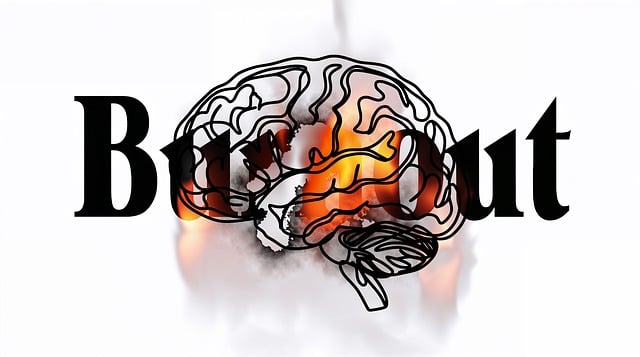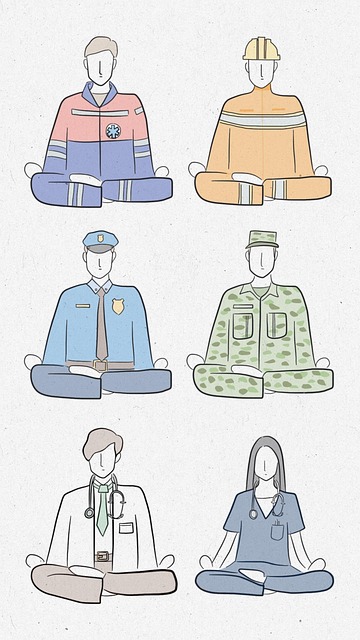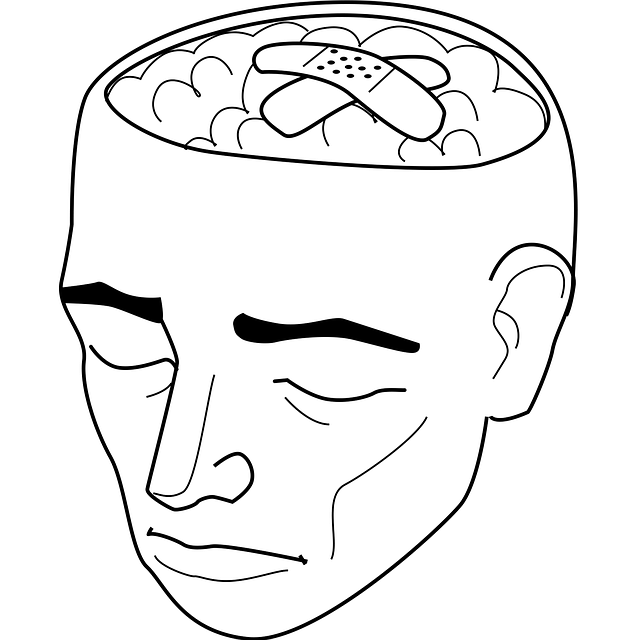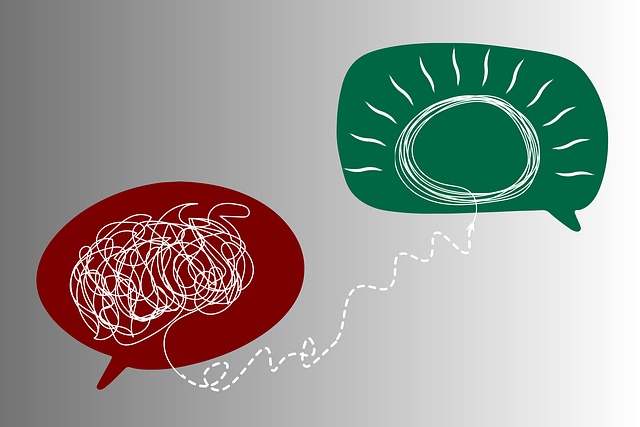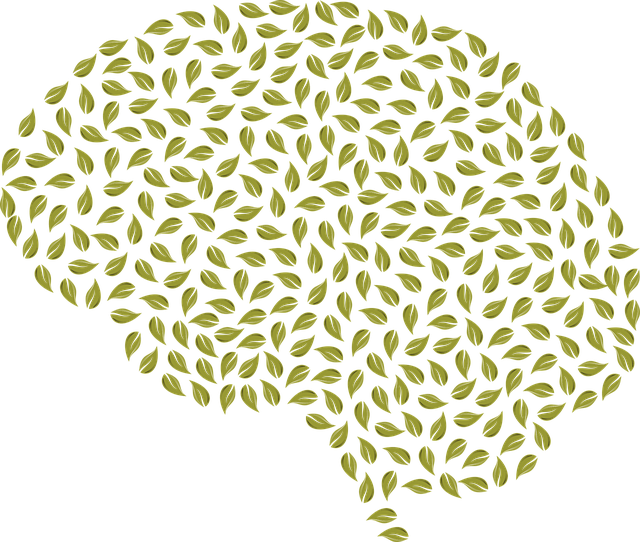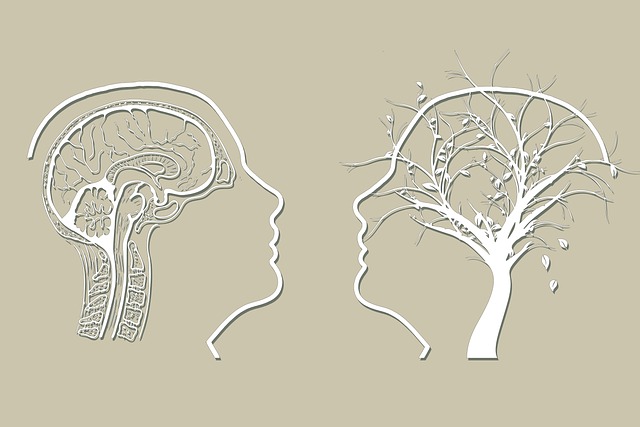Crisis Intervention Teams (CITs), incorporating Cognitive Processing Therapy (CPT), offer vital support for young adults during mental health crises, focusing on long-term wellness through cultural competency training. Rigorous CIT programs, featuring CPT, reduce restrictive measures and achieve positive outcomes by addressing unique cultural influences contributing to youth crises. Effective training equips professionals with evidence-based skills, fostering empathy and resilience, leading to improved patient outcomes and well-being. Integrating these strategies into risk management planning ensures professionals are prepared to handle acute situations and promote positive mental health for young adults through tailored CPT therapy.
Crisis intervention team (CIT) training programs are essential resources for equipping professionals to support young adults during mental health crises. This article delves into the critical role of CITs, highlighting Therapy for Young Adults, particularly Cognitive Processing Therapy (CPT), as a core component. We explore various training programs designed to enhance professionals’ skills in addressing emergent needs. By examining real-world applications and future directions, we underscore the profound impact of effective CIT training on young adults’ well-being.
- Understanding Crisis Intervention Teams: A Vital Resource for Young Adults
- Therapy for Young Adults: Cognitive Processing Therapy as a Core Component
- Training Programs: Equipping Professionals to Support Emergent Needs
- Implementation and Impact: Real-World Applications and Future Directions
Understanding Crisis Intervention Teams: A Vital Resource for Young Adults

Crisis Intervention Teams (CITs) are a vital resource for young adults facing mental health crises. These specialized teams, often composed of healthcare providers, first responders, and community outreach workers, offer immediate support and guidance in high-pressure situations. By integrating various therapeutic approaches, such as Cognitive Processing Therapy (CPT), CITs empower young adults to develop inner strength and navigate challenging circumstances.
The role of these teams extends beyond acute intervention; they also foster long-term mental wellness by promoting cultural competency among healthcare providers. This ensures that young adults from diverse backgrounds receive tailored support, addressing unique cultural and social factors that contribute to their crises. Effective CIT programs, including comprehensive training for all team members, have proven to reduce the need for restrictive measures and promote positive outcomes in young adult populations.
Therapy for Young Adults: Cognitive Processing Therapy as a Core Component

In the realm of crisis intervention team training programs, focusing on therapy for young adults is paramount. Among the evidence-based approaches, Cognitive Processing Therapy (CPT) stands out as a core component that empowers individuals to navigate and overcome emotional challenges. CPT delves into the cognitive distortions that often underlie mental health issues such as depression. By teaching young adults to recognize and challenge these negative thought patterns, therapy for young adults using CPT promotes emotional regulation, fostering mind over matter principles that are essential for long-term wellness.
This therapeutic approach not only aids in depression prevention but also equips individuals with skills to manage future crises effectively. Through CPT, young adults learn to process traumatic experiences and stressful events in a healthier manner, thereby reducing the likelihood of escalation into more severe mental health conditions. By integrating these strategies into crisis intervention team training programs, professionals can better support young adults in their journey towards resilience and emotional well-being.
Training Programs: Equipping Professionals to Support Emergent Needs

Effective crisis intervention team training programs are instrumental in equipping professionals to address emergent needs, especially within vulnerable populations such as young adults. These programs often incorporate evidence-based therapies like Cognitive Processing Therapy (CPT), which has shown promise in treating trauma and anxiety among this demographic. By participating in intensive training, healthcare providers gain the necessary skills to offer therapy for young adults, thereby enhancing their ability to provide timely anxiety relief and prevent burnout.
Incorporating compassion cultivation practices within these interventions further empowers professionals to respond with empathy and resilience. Such strategies not only foster better patient outcomes but also contribute to the well-being of healthcare providers themselves, offering sustainable solutions for managing stress and cultivating a supportive work environment.
Implementation and Impact: Real-World Applications and Future Directions

The implementation of crisis intervention team training programs has significantly impacted real-world applications within mental health support systems. These programs equip professionals with essential skills to manage acute situations, particularly focusing on young adults in need of therapy for cognitive processing issues. By fostering effective communication and coordinated responses during crises, such interventions can prevent escalations and promote positive outcomes.
Looking ahead, the future of crisis intervention lies in integrating these strategies into comprehensive risk management planning for mental health professionals. As we continue to develop self-care practices and mental wellness coaching programs, the emphasis on evidence-based techniques, like Cognitive Processing Therapy, will be paramount. This ensures that professionals are not only equipped to handle present challenges but also prepared to navigate the evolving landscape of mental health support, ultimately enhancing the overall well-being of those they serve.
Crisis intervention team (CIT) training programs play a pivotal role in equipping professionals to address emergent mental health needs among young adults. By incorporating evidence-based practices such as Cognitive Processing Therapy (CPT), these programs enhance the effectiveness of CITs in providing timely and tailored support. The real-world applications discussed in this article underscore the impact of well-trained CITs in fostering positive outcomes for young adults facing crises. Looking ahead, ongoing research and innovations in training will be crucial to meet the evolving needs of this demographic, ensuring that crisis intervention strategies remain relevant and impactful.


